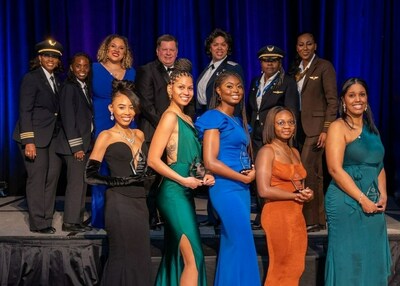Boeing, the commercial aircraft manufacturer, is putting its money where its mouth is. The company has announced new scholarships for aspiring pilots in underrepresented communities.
The company prides itself on its efforts to diversify the skies. Since 2019, Boeing has invested more than $8.5 million to bring pilot training programs to underrepresented communities across America.
Boeing’s Diversity Efforts
Boeing is investing $950,000 in scholarships for pilot training. Since the pandemic, there has been a growing demand for commercial airplane pilots. The company is taking this opportunity to get fresh new faces in the cockpit.
According to a press release, $500,000 of the sum will be allocated to fund 25 scholarships with five aviation organizations. One of which is specifically dedicated to getting Black women into aviation.
Sisters of the Skies is a nationally recognized aviation organization. It is focused on increasing the number of Black female pilots in professional flight decks in both military and commercial aviation. Founded in 2017, the Houston-based nonprofit has been committed to helping Black women receive the finances needed to attend flight school. The program currently has over 130 members and over 200 mentees who are commercial pilots in training. They receive the guidance needed by participating in its mentorship program.
Other organizations receiving scholarship funds include Aircraft Owners and Pilots Association, Latino Pilots Association, Organization of Black Aerospace Professionals, and Women in Aviation International. Boeing is also donating $450,000 to Fly Compton. The organization is a Los Angeles-based nonprofit that introduces minority youth to career opportunities in aerospace.
“The demand for qualified and diverse pilots remains high at airlines worldwide. While becoming a pilot provides a lifelong career, access to training remains a barrier to entry for many,” said Ziad Ojakli, executive vice president of Government Operations at Boeing. “These organizations are helping the next generation of pilots realize their full potential while also showing communities that are historically underrepresented in the industry that a future in aviation is possible.”
